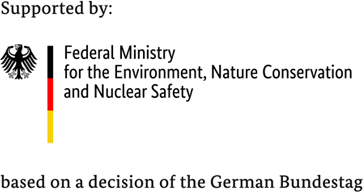Pasig and Parañaque learn about Seoul’s low emission development strategies
Together with the Climate Core Team and members of the NPAG and GPAG, Pasig City is committed to developing a City Promise that is grounded, bottom-up and informed by its stakeholders.The draft City Promise integrates results of assessments of local plans and public consultations held in 2018.
International experts, representatives of the Seoul Metropolitan Government (SMG), and the city officials of Pasig and Parañaque met on 8-9 August as part of the continuous city-to-city learning and collaboration championed under the Ambitious City Promises (ACP) project.
Two separate meetings were held for Pasig and Parañaque, where the respective cities discussed their planned and existing low emission development strategies (LEDS). Professor Youngsoo Choi, member of ACP’s Global Project Advisory Group (GPAG) and former director of SMG’s Climate & Air Quality Department shared key and relevant learning from the implementation of the Promise of Seoul, a comprehensive climate action plan launched by SMG in 2015.
Meanwhile, Mr. Jessie Todoc, also a member of the GPAG and international expert on energy and solid waste management, provided insights on how energy efficiency and conservation (EE&C) can be a strategic entry point to reduce greenhouse gas (GHG) emissions.
CITY PROMISE: PASIG CITY’S COMMITMENT TOWARDS LOW EMISSION DEVELOPMENT
The Experts and National Meeting for Pasig City took place at the City Hall on 8 August. The event was attended by members of the city’s multi-departmental Climate Core Team and representatives from the national government including the Department of Environment and Natural Resources (DENR) and the Climate Change Commission.
Through ACP, ICLEI SEAS assisted Pasig City in updating its GHG emissions inventory. Results of which showed that energy, particularly electricity consumption in the commercial sector, is a major source of the city’s emissions.
“We understand the importance of setting baselines through the GHG emissions inventory. Pasig City is committed to continue its actionable response to climate change,” Pasig City Mayor Vico Sotto stated.
Ms. Raquel Naciongayo, head of City Environment and Natural Resources Office (CENRO) presented the draft City Promise which showcased potential climate actions of the local government, private sector, and citizens of Pasig City under the energy, transport, and waste sectors – the city’s top emissions contributors.
“Pasig City is working collaboratively with its stakeholders in order to forward these actions towards low emission development. We are committed to reduce our emissions and we plan to do so through a bottom-up approach, engaging our citizens in every step of the way,” said Ms. Naciongayo.
Director Elenida Basug of the DENR – Climate Change Service (DENR-CCS) and Ms. Mylene Claudio of the CCC commended Pasig City’s efforts and progress in formulating its City Promise. They expressed optimism for the city to serve as a model and inspire other local government units (LGUs) in the Philippines to move towards this direction.
Mr. Jessie Todoc underscored the significance of EE&C measures that local governments can implement. He mentioned that there is an EE&C law mandating LGUs to designate an EE&C officer and develop a local EE&C plan.
Meanwhile, Prof. Choi shared that citizen participation has always been SMG’s priority. They have the Citizens’ Committee for Green Seoul, a multi stakeholder organization that has been instrumental in ensuring that the city government puts premium to the interests of Seoul citizens. The Committee monitors the implementation of the Promise of Seoul.
“SMG made sure that the citizens are being heard and their needs are considered in every activity. It is really important to encourage their participation,” Prof. Choi further added.
ACCELERATING PARAÑAQUE’S CLIMATE ACTION THROUGH MULTI-STAKEHOLDER ENGAGEMENT
On August 09, the team met with Parañaque City officials to facilitate knowledge exchange between Seoul and the city. Solid waste management was identified as a priority urban sector of Parañaque. The city has recently established a 500-square meter materials recovery facility (MRF) which is also envisioned to develop marketable upcycled and recycled products (e.g., hollow blocks, pavement blocks).
As solid waste management emerged as a priority sector for Parañaque City, experts from SMG Seoul’s experience in setting up its upcycling plaza and how this facility has grown over the years.
Parañaque City has also been ensuring compliance with the Philippine Green Building Code by safeguarding its provisions in evaluating building permits. The City hopes that the continuing collaboration with ICLEI can help enhance the city’s capacities towards the adoption of its own local green building code. In Seoul, Prof. Choi explained that green building measures showed the highest impact in terms of GHG emissions reduction.
“As a relatively new office in the LGU, we are always very eager to learn from opportunities and partnerships such as that with ICLEI, to help us comply with national government policies, fulfill our mandate to serve our citizens, and achieve our sustainable development agenda,” stated Mr. Isabelo Mojica Jr., Assistant Head of Parañaque’s CENRO.
These city-to-city learning and knowledge exchanges have been worthwhile activities for all involved. Both Pasig and Parañaque has gleaned replicable strategies from SMG while SMG rediscovered the contexts and challenges of these cities; surfacing more tailor-fit suggestions for city-led solutions.
—
The Ambitious City Promises (ACP) project is funded by the German Federal Ministry for the Environment, Nature Conservation, and Nuclear Safety (BMU) through the International Climate Initiative (IKI) program. It is implemented by ICLEI-Local Governments for Sustainability in close cooperation with the Seoul Metropolitan Government. The project commits to reduce GHG emissions through participatory and inclusive local climate actions in selected cities in Indonesia, the Philippines, and Vietnam.


